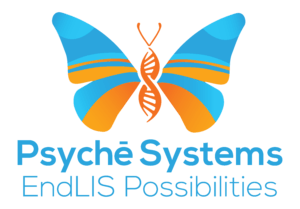Laboratory software is one of the most important investments any lab can make. Software systems can streamline workflows like sample tracking, case assignment, and auditing. They can also expedite tasks like data capture, storage, organization, analysis, and security.
As a lab software vendor, Psyche Systems highly recommends involving your internal team in the process of selecting a suitable software product for your lab. After all, these are the people who will interact with the laboratory software on a daily basis, so this collaboration will foster ownership and ensure that the software you buy fits your workflows.
Collaboration is generally only as effective as the quality of the questions asked. So today, we will share a thorough list of questions you should ask your team if you’re considering investing in efficient laboratory software.
Assessing Current Laboratory Software Workflow
Good software should streamline workflows and processes within a lab. Software should help increase lab efficiency, improve turnaround times, and enhance diagnostic accuracy.
Before buying laboratory software, it is essential to understand your lab’s current workflows and processes clearly. To achieve this, ask your team the following questions:
- What steps do you follow when running a diagnostic test?
- How do you track samples throughout their lifecycle?
- What are the typical data entry and recording procedures for tests?
- How do you collaborate in various stages of testing?
- How are our current laboratory workflows structured?
- Are there any unique aspects of our operations that the software must accommodate?
In addition, inquire about the operational bottlenecks your team faces and the lab operations they wish to streamline. The knowledge will help you get a system whose features can help address existing pain points. Some questions that would help you understand your team’s current challenges include:
- What challenges do you encounter in your day-to-day operations?
- What issues arise during the data entry, organization, and analysis?
- Do you have challenges collaborating with team members?
- What processes and tasks do we want the laboratory software to streamline or improve?
Ensuring User Adoption And Training for Laboratory Software
Although laboratory software is efficient, not all team members will accept a new way of doing their work. As such, planning for ways to help streamline user adoption is crucial. Doing so will ensure your team members accept and use the new technology.
Thus, ask your team if they are comfortable switching to a new technology before shopping around. Furthermore, ask your team to consider any challenges they might encounter and what might be the best way to train them on the new technology. Here are some questions that might help broach the topic:
- How comfortable are you with adopting new laboratory software?
- What concerns do you have with adopting this software?
- Are there specific features you’d like to see in the new software?
- Would you need additional training during the transition?
- How do you prefer to receive training on new technologies?
Use the insights collected from the questions to create a training program that will maximize user adoption. The program should focus on helping your team maneuver anticipated challenges and understand how the software works. In particular, user adoption training should center on essential aspects such as:
- Understanding the laboratory software’s features and interface.
- Creating and organizing tests with the laboratory software.
- Inputting, tracking, and managing samples.
- Entering experimental data into the lab software.
- Using built-in analysis tools to interpret and visualize results.
- Collaborating with team members using the software.
- Utilizing the software’s security features to safeguard sensitive data.
- Integrating the laboratory software with existing tools or instruments.
- Generating reports and documentation using the software.
- Troubleshooting the laboratory software.
- Managing software updates and performing routine maintenance tasks.
Budgetary Considerations and Long-Term Sustainability
Like any purchase, good laboratory software should offer a fair value for the money invested. Software should remain relevant and effective for a prolonged period. This longevity helps your lab by avoiding the need to acquire new software frequently.
Before buying software, gather your finance team and inquire if your facility can afford the transition. Ask questions to understand the budgetary expectations for the software, potential ROI, and long-term sustainability.
Some questions you could ask include:
- What is the cost of acquiring and implementing the laboratory software?
- Can you provide insights into the expected ROI from the software?
- Are there recurring costs, such as maintenance fees and subscriptions?
- What budgetary implications or unforeseen financial implications could arise when implementing the software?
- Are there potential cost savings from using the laboratory software?
Besides financial feasibility, scrutinize the software’s scalability and flexibility. A worthy laboratory software solution should be capable of adapting to increased data volumes, users, and evolving diagnostic demands.
Whatever software you choose should be adaptable and able to integrate with existing and emerging technologies. Look for attributes that will future-proof your investment and minimize the need for costly overhauls later on.
Conclusion
Collaboration between decision-makers and the internal team is the secret behind efficient lab software. This synergy will maximize the chances of buying software that aligns with your lab’s workflows and budget.
While there are many questions you’d want to ask your internal team, prioritize the questions that will help you understand current workflows. Ask questions that will help you enhance adoption and make solid financial decisions.
Contact our developers to get laboratory software customized for your lab processes.

